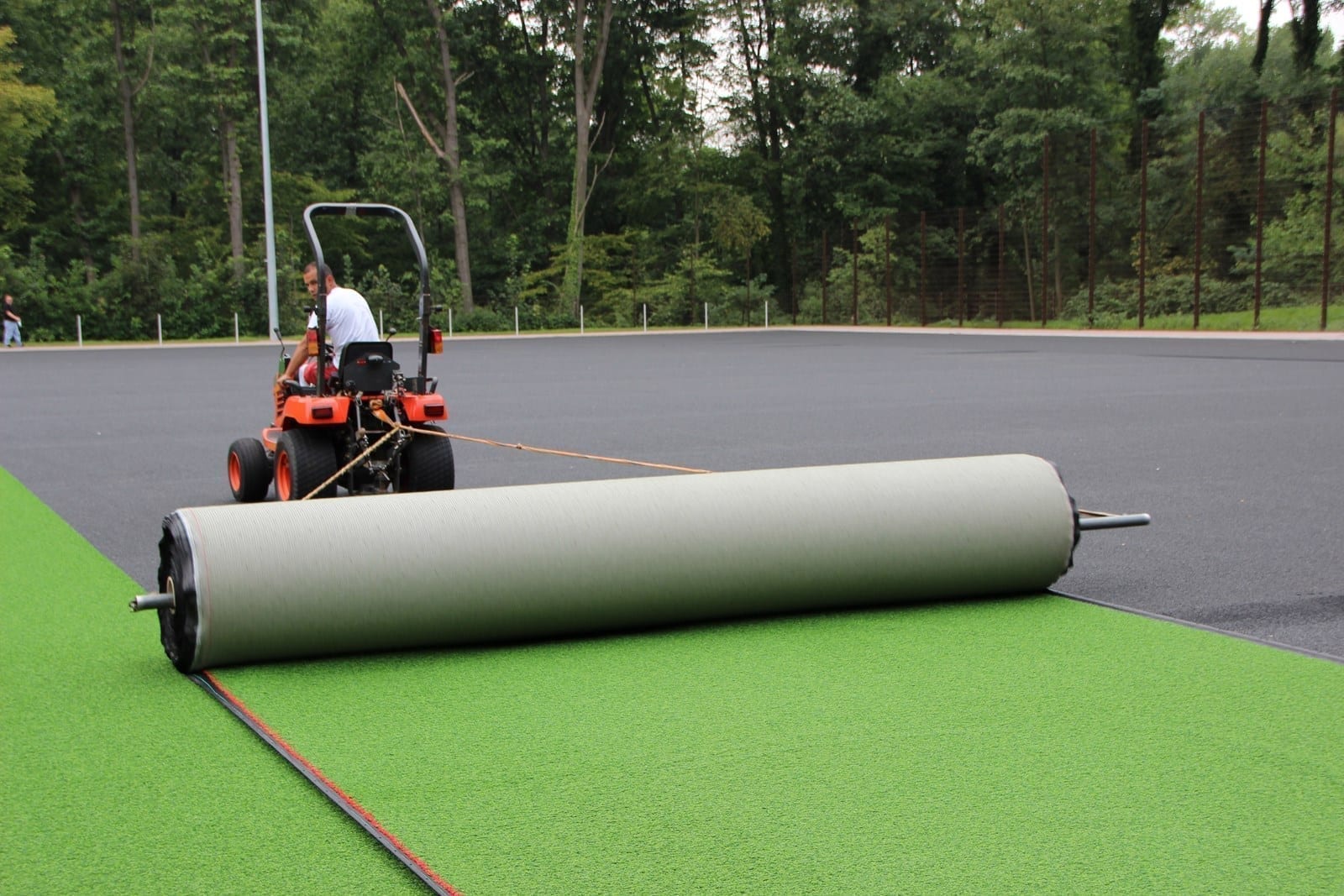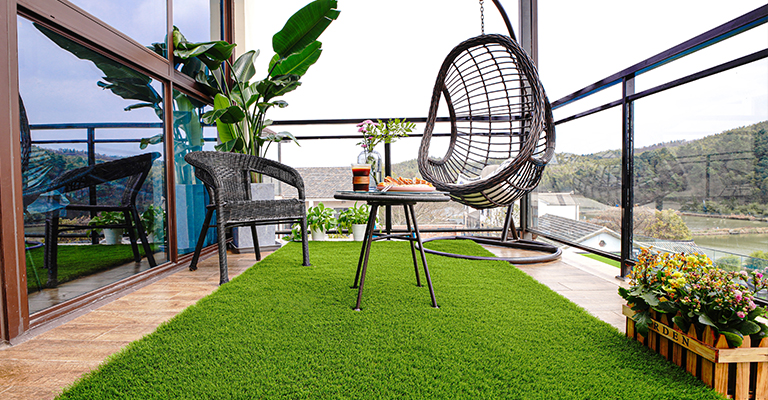Look Into the Environmental Advantages of Opting for Artificial Grass Solutions
The fostering of man-made lawn services offers a compelling possibility to address pressing ecological obstacles. By substantially lowering water usage and minimizing the application of damaging chemicals, these alternatives not only promote sustainable landscape design but also secure regional ecological communities. In addition, the lower carbon impact related to lowered upkeep tasks adds to an extra sustainable approach to land management. Nonetheless, the ramifications of these advantages prolong beyond mere preservation initiatives, questioning regarding their lasting influence on habitat preservation and total environmental equilibrium. Discovering these dimensions exposes a complicated interplay worth taking into consideration.
Water Conservation Advantages
Among one of the most substantial benefits of synthetic grass is its ability to save water. Standard yard yards call for substantial irrigation, especially in areas susceptible to dry spell or water restrictions. In comparison, fabricated turf does not need watering, substantially reducing the overall demand for water resources. This function is specifically advantageous in arid areas where water shortage is a pushing worry.
By eliminating the requirement for routine watering, artificial lawn adds to lasting landscape practices and assists minimize the environmental effect of too much water consumption. In addition, the conservation of water reaches the reduction of overflow, which can cause dirt disintegration and waterway contamination.
In addition, the installation of synthetic grass permits homeowners and towns to allocate water sources much more efficiently, concentrating on necessary uses such as alcohol consumption water and agriculture. The shift in the direction of man-made turf not only advertises responsible water usage yet likewise straightens with more comprehensive environmental objectives aimed at preserving natural deposits.
As neighborhoods significantly focus on sustainability, the water preservation benefits of synthetic grass present a compelling instance for its fostering in domestic and industrial landscape design jobs.
Minimized Chemical Usage
The shift to synthetic grass substantially decreases the reliance on chemical therapies frequently used in natural grass upkeep. Typical grass monitoring normally includes the application of pesticides, plant foods, and herbicides to promote growth and control parasites. These chemicals can position threats to human health, neighborhood wildlife, and the setting, adding to soil and water contamination.
In comparison, synthetic grass gets rid of the requirement for these damaging materials. Once installed, it calls for minimal maintenance, largely including normal cleaning and occasional infill replenishment. This reduction in chemical usage not only profits the immediate setting however additionally contributes to more comprehensive eco-friendly stability. By decreasing the release of synthetic substances into the ecological community, synthetic grass promotes much healthier dirt and water systems.
In addition, the lack of chemical drainage connected with synthetic grass installations helps protect regional rivers from pollution, supporting marine life and keeping biodiversity. Phoenix turf companies. As areas increasingly prioritize sustainable techniques, choosing synthetic grass provides a sensible solution that aligns with environmental preservation goals. Via this shift, residential or commercial property owners can appreciate lavish green areas without compromising eco-friendly health and wellness, leading the way for a much more sustainable future
Reduced Carbon Footprint

In addition, the installment of synthetic grass can result in significant water conservation. Natural yards need considerable amounts of water for irrigation, which not just includes to my response the carbon impact connected with water removal and treatment yet likewise strains neighborhood water resources. On the other hand, artificial lawn needs marginal upkeep, calling for no watering, thus significantly lowering water usage and its associated power prices.
Additionally, the durability of synthetic grass adds to its reduced carbon impact. With a lifespan of as much as 15 years or even more, the requirement for regular substitutes is lessened, resulting in less waste and reduced power usage in manufacturing and disposing of standard lawn choices. Overall, artificial grass offers a lasting alternative for eco aware landscape design.
Environment Conservation
Habitat conservation is a vital factor to consider in the dispute over landscaping choices, especially when comparing synthetic grass to natural grass. All-natural turf yards commonly call for substantial maintenance, including the use of chemicals, fertilizers, and herbicides, which can detrimentally affect neighborhood environments. These chemicals can seep into the dirt and waterways, visit site harming indigenous vegetation and fauna and interfering with neighborhood environments.
On the other hand, synthetic grass provides a chance to decrease the ecological impact of landscape design. By opting for artificial yard, house owners can reduce the disruption of all-natural environments connected with typical grass care techniques. Fabricated grass eliminates the demand for dangerous chemicals, consequently securing nearby wildlife and maintaining the stability of surrounding environments. Additionally, the installation of synthetic grass can cause the conversion of former lawn areas into more biodiverse landscapes, such as pollinator gardens or indigenous plant areas, which can support neighborhood wildlife.
Inevitably, the change to artificial turf not just preserves water and reduces upkeep initiatives but additionally promotes a much more harmonious relationship in between human tasks and the native environment, promoting habitat conservation in the process.
Long-Term Sustainability
Lasting sustainability is an essential element in evaluating the advantages of fabricated turf over traditional turf yards. Among the most substantial advantages of artificial lawn is its toughness; it can last approximately 15-20 years with very little upkeep, whereas natural turf requires constant reseeding and substitute. This durability reduces the need for consistent resources, such as water, fertilizers, and chemicals, which are vital for preserving a healthy grass yard.
Additionally, synthetic grass adds to a reduction in carbon exhausts connected with grass care equipment. Traditional grass commonly require gas-powered lawn mowers, trimmers, and blowers, all of which add to air pollution. Arizona turf. In comparison, artificial grass removes the need for such equipment, advertising a cleaner setting
Additionally, the manufacturing of artificial grass increasingly uses recycled products, boosting its sustainability account. As producers embrace environmentally friendly methods, the ecological impact of artificial turf continues to decrease.

Conclusion
The adoption of synthetic grass options provides considerable ecological benefits, including considerable water conservation, minimized reliance on unsafe chemicals, and a reduced carbon impact. Synthetic turf help in preserving natural habitats by lessening land disruption and promoting long-term sustainability via the usage of resilient materials. Jointly, these variables highlight the potential of artificial turf to add favorably to ecological wellness and use a viable choice to conventional landscape design practices in a progressively resource-conscious world.
In comparison, fabricated lawn does not require watering, significantly reducing the overall demand for water sources. By decreasing the release of synthetic substances into the ecosystem, synthetic grass promotes healthier soil and water systems.
In addition, the installment of synthetic turf can result in substantial water preservation. In comparison, artificial grass requires marginal maintenance, needing no watering, therefore substantially lowering water use and its linked energy expenses.

Comments on “Select Trusted Artificial Turf Companies Phoenix for High-Quality and Realistic Grass”